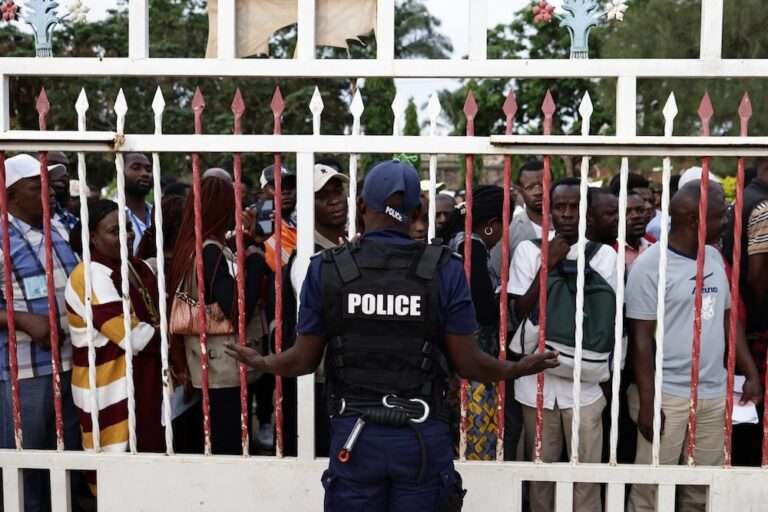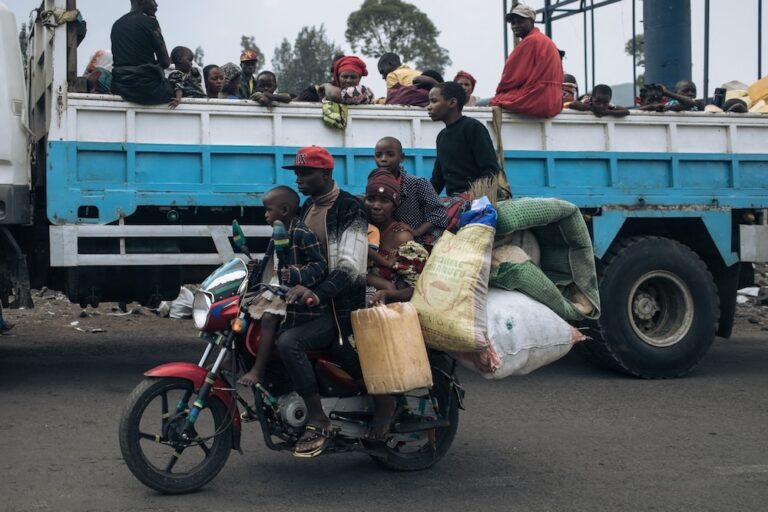(JED/IFEX) – In a 23 November 2000 letter to the Congolese minister of human rights, Kakez Ekir Kaz-Azama, copied to all national and international human rights and free expression organisations, Polydor Muboyayi Mubanga, publisher of the daily “Le Phare”, protested the harassment against himself, his journalists and their respective families. Le “Phare”‘s publisher notably writes […]
(JED/IFEX) – In a 23 November 2000 letter to the Congolese minister of human rights, Kakez Ekir Kaz-Azama, copied to all national and international human rights and free expression organisations, Polydor Muboyayi Mubanga, publisher of the daily “Le Phare”, protested the harassment against himself, his journalists and their respective families.
Le “Phare”‘s publisher notably writes that “the extreme seriousness of the (false) accusations levelled against us by the state’s minister of communications lead us to fear for our safety and our families’ safety, as well as for the guarantee of free expression which our newspaper, following the example of our colleagues, has a right to claim.”
The publisher explains in his letter that on 17 November, while addressing the Kinshasa Catholic Faculties’ First Scientific Seminar on the theme “Which communications policy for peace in the DRC?: Realities, Limitations and Perspectives”, Minister of Communications Dominique Sakombi Inongo launched a vicious attack against the newspaper “Le Phare”, describing it as as an “accomplice of those who carry out genocide.” To back up his accusation, the minister of communications stated that an article titled “Kabila launches his DSP”, published by “Le Phare” over three years ago (5 September 1997), which had led to three months’ imprisonment for the publisher and six months in hiding for the author of the article, had been intended for James Kabarehe (currently the Rwandan army’s chief of staff) and the Rwandans and Ugandans “who were already preparing their attack on the Democratic Republic of Congo.” Kabarehe was the Congolese Armed Forces’ (FAC) chief of staff under the advent of Laurent-Désiré Kabila, and commanded rebel troops of the RCD (Congolese Rally for Democracy) who took the city of Matadi, from the Kitona airport, in August 1998.
Since mid-November, the minister of communications has had the public station RTNC (Radiotélévision nationale congolaise) broadcast incendiary editorials – almost appeals for death – against the newspapers “Le Phare” and “Le Potentiel”, which have dared to criticise the government’s actions.
JED vigorously condemns the minister of communications’ strategy of systematically attacking all opinions which are critical of the government, which is reminiscent of the era of the all-powerful Single Party, and recalls the “glory years” of Mobutism. The disasterous consequences of this policy for the country and for the Congolese people is still being evaluated to this day.


